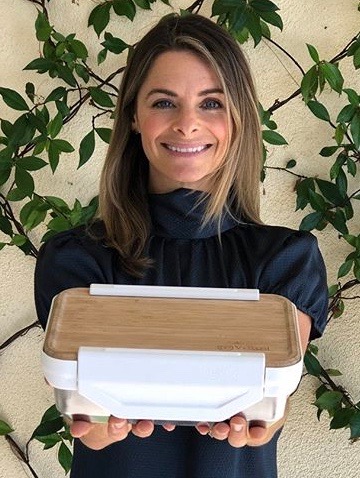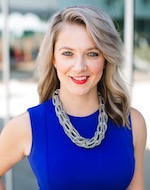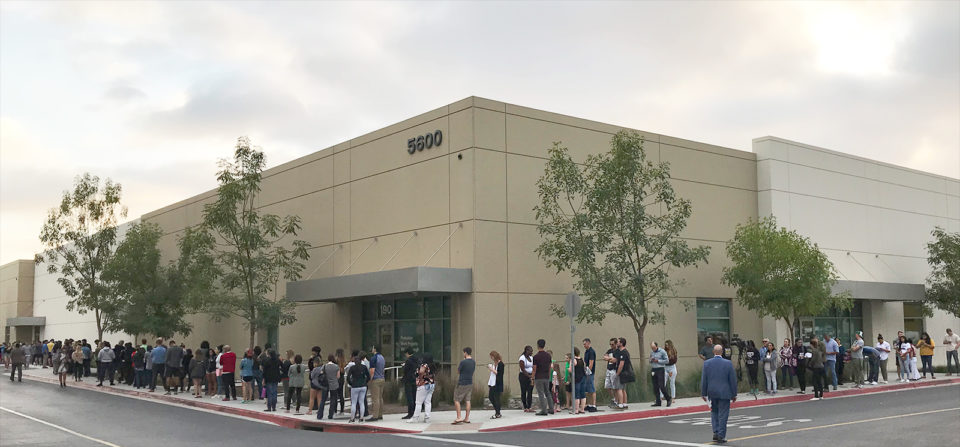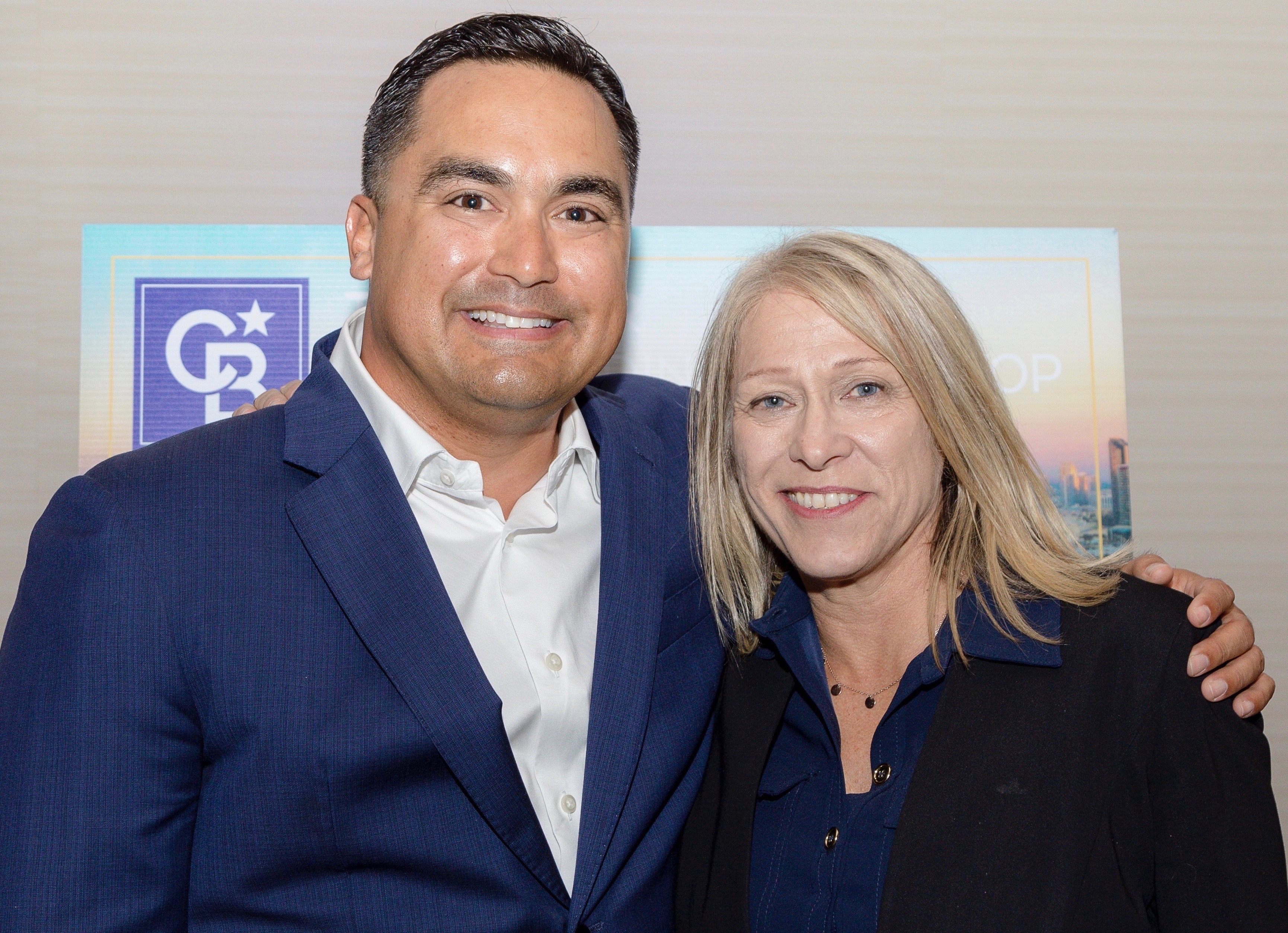Daily Business Report-Nov. 5, 2019
Conditional voter registration took effect during the November 2018 election, leading to long lines at the Registrar of Voters office.
Board of Supervisors approves four satellite
voting locations for March 2020 primary election
The County Board of Supervisors approved funding for four satellite voting locations for the March 2020 Primary Election during a special board meeting on Monday.
Traditional polling places will remain in place, but the satellite voting locations will act as offshoots of the Registrar’s office. They will open three days before Election Day and be staffed by Registrar employees.
The move came after the recent passage of state Senate Bill 72, which requires the Registrar to allow conditional voter registration at every polling place starting with the March 3 election. That means anyone who wants to register to vote, re-register to vote after an address change, or change their party preference to vote for a presidential candidate, can do so on Election Day. During the last election, conditional voter registration was allowed only at the Registrar’s office, creating long waits for people.
To avoid long lines at the polls or at the Registrar’s office in March, conditional voter registration voters have the option to visit one of the satellite voting locations. Registrar staff will have electronic access to the voter rolls, process requests quickly and give voters their ballots.
Those who go to the polls on Election Day to register and vote will have to vote provisionally. Provisional ballots take longer to process because Registrar staff must check whether the voters were eligible to vote, eligible to vote in the races they marked on the ballot and did not vote twice.
“The fear is long lines at the polls and an increased number of provisional ballots could delay tallying the overall vote by the required certification deadline,” said Registrar of Voter Michael Vu. “The four satellite offices will take some of the pressure off the polling places and provide a smoother overall election process.”
Potential locations for the four satellite sites are in San Marcos, Carmel Mountain Ranch, Spring Valley and Chula Vista. They would be open from 8 a.m. to 5 p.m. the Saturday, Sunday and Monday before Election Day. The hours would extend from 7 a.m. to 8 p.m. on Election Day, the same time frame as the polls.
___________________

reVessel exceeds Kickstarter goal for new
compact Explorer Kit lunchbox system
San Diego-based startup reVessel, maker of versatile stainless-steel food storage systems, exceeded its $15,000 Kickstarter goal of $15,000 within 36 hours of launch and have now raised over $126,000.

While this is the second round of pre-orders for reVessel’s cornerstone product, the Adventure Kit, it is the launch of its new Explorer Kit, which is a durable and compact 11-piece system especially designed to fit into a child’s backpack.
The kit allows parents to cut down on plastic waste by no longer relying on single-use sandwich bags and eliminate toxic exposures to chemicals from plastic food containers. reVessel Explorer and Adventure Kits are now available for pre-order on Kickstarter in a variety of bundle options and at discounted early-bird prices for a limited time.
“We’re so proud and honored to have achieved our goal so quickly, and to have people see that reVessel products can help them to live healthier and more sustainable lives,” said CEO Jessica Bell, who founded the company with her husband Eddie.
Bell said reVessel Explorer and Adventure Kits are now available for pre-order on Kickstarter in a variety of bundle options and at discounted early-bird prices for a limited time. The Explorer Kit, which has an MSRP of $95, is available for $65. The 13-piece Adventure Kit, which has an MSRP of $125, is available for $89. Both kits are also available in a two pack as well, with the Explorer Kit two-pack priced at $119 and the Adventure Kit two-pack priced at $169. There is also a combo pack available of one Adventure Kit and one Explorer Kit for $149, as well as a family pack of two Adventure Kits and two Explorer Kits for $289.
___________________
City of San Diego seeks local
startups to solve civic challenges
The city of San Diego is currently accepting applications for the 2019-2020 Startup in Residence (STIR) program, a collaborative process that enables government agencies and emerging tech companies to co-develop and share solutions to the most pressing challenges.
The city is seeking the best and brightest local startups to partner with the STIR program to develop tech-based solutions for its civic and operating challenges.
Startups can apply to work toward solving any of 10 civic challenges in areas such as citizen engagement, cultural assets mapping, predictive traffic analytics, road condition assessment, automated payment systems, active transportation, urban tree inventory, drone technology and city asset classification.
This potential engagement opportunity will span a 16-week, voluntary, in-residence period. The application is available through the City Innovate website at cityinnovate.com/challenge. The application deadline is Nov. 20.
Selected startups will have in-person and web-based meetings with participating city departments and agencies, educating startups about government partnerships, procurement processes, open data and systems integration and civic tech trends.
For more information about the city of San Diego STIR program, contact the Economic Development Department at 619-236-6700 or sdbusiness@sandiego.gov.
___________________
General Atomics’ Predator series aircraft
pass industry record 6 million flight hours
General Atomics Aeronautical Systems Inc. (GA‑ASI) announced that its Predator-series of Remotely Piloted Aircraft (RPA) has surpassed six million flight hours. The milestone was achieved on Oct. 31, 2019 with GA-ASI aircraft having completed 430,495 total missions with close to 90 percent of those missions flown in combat.
“Six million flight hours is a testament to the reliability of our unmanned aircraft systems that are designed, built, and sustained by a dedicated group of skilled and innovative professionals for operations around the world,” said Linden Blue, CEO. “In our more than 25 years in business, GA-ASI has achieved a list of historic ‘firsts’ in RPA development and we have leveraged those accomplishments to better support our customer’s requirements.”
The identification of the specific aircraft and customer that achieved the milestone is unknown as every second of every day, 69 Predator-class Medium-altitude, Long-endurance (MALE) RPA are airborne throughout the world. Flight hours have continued to grow at unprecedented rates in recent years, with 500,000 flight hours achieved from 1993 to 2008, one million hours in 2010, two million hours in 2012, three million hours in 2014, four million hours in 2016 and five million in 2018.
The Predator series includes the Predator, Predator B, Gray Eagle, Avenger and MQ-9B SkyGuardian lines.
GA-ASI aircraft average more than 60,000 hours per month supporting the U.S. Air Force, U.S. Army, U.S. Marine Corps, U.S. Department of Homeland Security, NASA, the Italian Air Force, the Royal Air Force, the French Air Force, the UAE Armed Forces, and other customers.
___________________

SDSU recognized as one of nation’s most
environmentally responsible campuses
The Princeton Review recognized San Diego State University in its annual guide for the most environmentally responsible colleges, an objective SDSU pursues through initiatives that include reduced carbon emissions, renewable energy sources and campus hydration stations.
Released Oct. 22, the “Guide to Green Colleges” recognizes institutions that are making exceptional commitments to sustainability.
“I love to see our sustainability community, which has grown in diversity and intensity, recognized nationally,” said Courtney Ransom, a senior majoring in sustainability and commissioner of the Associated Students Sustainability / Green Love commission.
Click here to view the Sustainable SDSU 2019 Progress Report
___________________
New York Times reporter in San Diego
to discuss investigative reporting

Inewsource and the San Diego Press Club will host Susanne Craig, investigative reporter with The New York Times, for a conversation about the state of journalism from 6 to 8 p.m., Thursday, Nov. 7, at the Museum of Photographic Arts in Balboa Park, 1649 El Prado, San Diego. Admission is free but reservations are requested. The program is part of the Press Club’s “Nuts & Bolts” series. For more info, visit www.sdpressclub.org.
Craig will discuss the tactics of investigative reporting, including quoting anonymous sources and confirming second-hand information, as well as how to deal with hearsay and unconfirmed allegations to make a story bulletproof.
In October 2016, Craig was part of a Times story about two leaked pages from Donald Trump’s 1995 tax returns, which showed the presidential candidate declared a $916 million loss.
___________________
The One Club for Creativity hosts
talk by Red Door Interactive executive
The One Club for Creativity San Diego, formerly SDX, and the San Diego Advertising Club, will host “AI in Marketing: Predicting Your Future Customers,” a presentation from Ron Hadler, senior director of marketing technology for Red Door Interactive.
The program will be held from 4 to 6:30 p.m., Thursday, Nov. 7, at the Red Door offices, 350 10th Ave., Suite #100, San Diego.
Hadler leads research and development at Red Door. As a marketing technologist, he brings software development, data engineering and data science across such marketing disciplines as web development, paid media, analytics and social media.
Admission is free for One Club members, $40 per person for nonmembers and $15 for students. The presentation is part of The One Club’s ongoing “Inspire” seminar series. For more information, visit www.oneclubsandiego.org.
___________________
Salk Institute for Biological Studies
launches How Cures Begin podcast
A new podcast series called “How Cures Begin” launches this week and features one-on-one conversations with Salk researchers working at the forefront of their respective scientific fields, from cancer and neuroscience to plant biology, circadian science and more.
The eight episodes of season 1, which will be released weekly, include interviews with the following Salk scientists:
Nicola Allen, associate professor, discusses her research investigating star-shaped brain cells called astrocytes, important support cells in the brain, during this interview and audio tour of her lab.
Eiman Azim, assistant professor, speaks about how the brain controls skilled movements such as throwing a dart.
Joanne Chory, globally renowned researcher and director of Salk’s Harnessing Plants Initiative, describes how plants can help mitigate climate change.
Ken Diffenderfer, assistant director of Salk’s Stem Cell Core facility, shares what stem cells are, why they are so valuable for research, and what their favorite medium is.
Dannielle Engle, assistant professor at Salk, has a personal and professional connection to pancreatic cancer. She tells us why pancreatic cancer is both hard to detect and hard to treat.
Rusty Gage, professor and Salk’s president, shares his cutting-edge research and why Salk is one of the top scientific research institutes in the world.
Tony Hunter, an American Cancer Society professor at Salk, shares highlights from his 50-year journey as a scientist, including how he made the critical discovery that launched an entirely new class of anti-cancer drugs.
Emily Manoogian, a postdoctoral fellow at Salk, studies the biological clock that affects every cell in our body.
Where Cures Begin can be heard on Apple and Google podcasts, Stitcher, and the Salk Institute website.
___________________
Tatjana Blanusa joins Dr. Seuss Enterprises

Tatjana Blanusa has joined Dr. Seuss Enterprises, a children’s entertainment company, as director of global licensing and retail development, reporting to Julie Dill, vice president of global licensing, marketing and communications.
In her new role, Blanusa will identify and activate new licensing partners and build the company’s relationship with retailers to drive sales, brand affinity and channel growth worldwide. She will also play an integral role in planning and developing new environmentally friendly initiatives and collaborations.
Prior to joining Dr. Seuss Enterprises, Blanusa held several key account/sales, customer marketing and brand partnership roles at The LEGO Group since 2008. She is a graduate of the University of Massachusetts, Amherst.
___________________
Youngevity completes
acquisition of BeneYOU LLC
Youngevity International Inc. announced that it has closed the acquisition of BeneYOU, LLC’s assets with an effective date of Nov. 1, 2019.
Youngevity Founder and CEO, Steve Wallach said, “We are proud to welcome the customers and distributors of Jamberry, Avisae and M. Global into our organization and we look forward to showcasing all of their exciting products to Youngevity distributors and customers around the world,” said Youngevity founder and CEO Steve Wallach.
BeneYOU’s flagship brand Jamberry has an extensive line of Nail products with a core competency in social selling. Avisae focuses on the gut health, and M.Global delivers hydration products.



